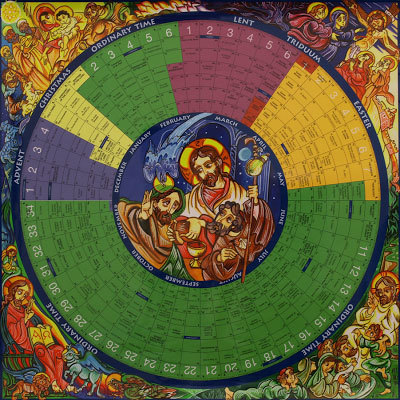Finding Connection in Ordinary Time;
What Would Jesus Do ?


Loneliness may feel heavier during Ordinary Time, a religious season that seems quiet compared to the celebrations of Christmas or Easter. Yet, this quieter stretch in the Church calendar offers a period for healing and connection. When we feel isolated, asking the simple question; “What would Jesus do?” guides us toward deeper relationships and renewed purpose.
Jesus constantly reached out to others, especially those on the margins. He noticed the lonely, the forgotten, and the overlooked. When feeling alone, think of Jesus: perhaps by taking the first step to greet someone new, sending a message to an old friend, or offering a small act of kindness to a neighbour.
Ordinary Time helps steady, quiet growth in faith and love. It’s a time to deepen relationships; not necessarily through grand gestures, but through consistency, listening, and presence. Open your heart to those around you. Trust that small connections can grow into meaningful bonds.
Loneliness is real. Ordinary Time is an opportunity to consider “What would Jesus do?” while leading you to reach out, welcome others, and discover God’s love.
“As we head into summer, remember — you are not forgotten.
Even in the quiet months, even when you are away, you matter.
Your faith, your presence, your kindness — they leave a mark.
And the One who watches over you never sleeps.
So wherever you go, carry this truth:
You are seen, you are known, you are loved. Always.”
Amen!

A Prayer for Ordinary Time
Lord,
You are the fullness of life, of holiness, and of joy.
Fill our days and nights with the love of your wisdom,
that we may bear fruit in the beauty of holiness,
like a tree watered by running streams.
~ Chaplain Mike (Michael Spenser)
The church has its own calendar of seasons, which have nothing to do with the weather! Most people know the significant Christmas holidays, but the church calendar is made up of weeks that help us prepare and then live out the meaning of those holy days. The basic structure of the liturgical year is the four holy seasons: Advent, Christmas, Lent and Easter. Outside of these holy seasons is what is called Ordinary Time .
In Latin, the name of this season is Tempus per annum (literally time during the year). This does not mean “boring time where nothing interesting happens.” The term derives from the word “ordinal,” as in “numbered”—and, indeed, the Sundays that fall within Ordinary Time are often designated like The Third Sunday After Pentecost, or The Second Sunday Before Lent. Ordinary Time refers to any period of time that falls outside the major seasons of the liturgical year.
Ordinary Time celebrates “the mystery of Christ in all its aspects.” The color of green is appropriate because it is the most ordinary color in our natural environment. In many ways it does feel ordinary. After busy seasons filled with special church services and events it feels ordinary without ‘special’ focus.
Ordinary Time emphasizes that we are called to live out the Gospel ,day by day, one day at a time, not only in the notable experiences of life, but also in the mundane. “These Sundays remind us of a simple truth—”most time is ordinary time, neither crisis nor climax, tragedy nor comedy, just ordinary.”
A time to bring together what we say, do and think as we share experiences with the new people we meet on holidays, at work and in the neighbourhood. From small considerations with strangers to deepening relationships with friends and family, a time to build thought into action and joy, we share with others.
